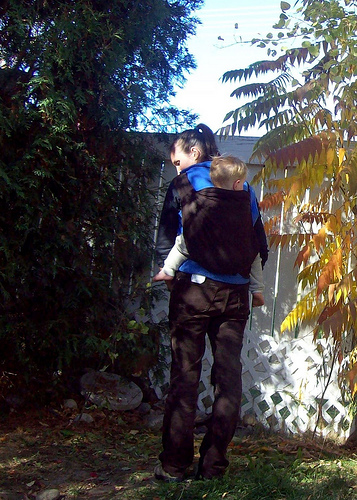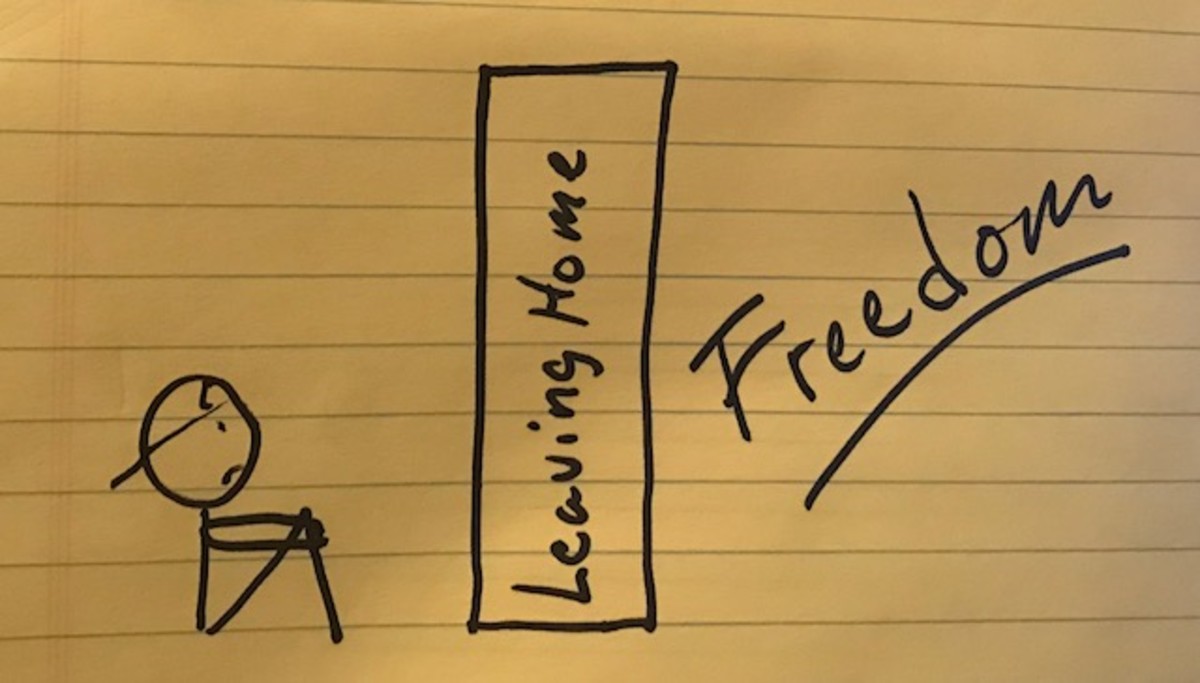Misconceptions of Attachment Parenting

Take this quick poll!
Do you think attachment parenting is....
When Jamie Lynn Grumet recently appeared on the cover of Time Magazine breastfeeding her toddler, controversy closely followed suit. Those who weren’t familiar with the term attachment parenting prior to the widely publicized magazine cover now had a name and an image to put to the phrase – and a host of misconceptions and misunderstandings therein.
Since then, I have been hearing a lot of deliberation in the case against attachment parenting. Unfortunately, much of the debate (but not all) is derived from individuals with no background knowledge on attachment theory or parenting whatsoever. Lets take a closer look at some of these misconceptions and their corresponding rebuttals.
AP Parents Spoil Their Children
You may have heard your mother say it – “Put that baby down – you’re going to spoil him!” The truth is, “spoiled” and “baby” should absolutely never be used affirmatively in the same sentence. Why? Babies simply cannot be spoiled. The only communication tool that infants possess is their ability to cry. When a parent responds to a baby’s cry, the infant learns to trust that his needs will be met, which fosters the development of a healthy and attached relationship. And yes, babies do cry because they want to be held, but holding a baby when he or she wants to be held will most likely not negatively impact the baby in any manner. In fact, the more a parent responds to their baby, the more independent and emotionally protected their baby will become. Antithetically, if a parent does not respond appropriately, the baby may excessively cling, exemplify a lack of concern for the parent or suffer emotional turbulence. When there is no consistency in responsiveness, the baby has no trust that the parent will tend to his or her needs. Moreover, some contend that these babies grow up to be “spoiled brats”. Spoiling children with material items is much different than providing a nurturing relationship via attachment parenting. AP parenting does not denote coddling children and indulging in their wants – it means creating and maintaining a safe and loving bond with them and responding to their needs. And babies need love and affection. Adults need love and affection. How would you feel if your significant other completely disregarded your hurt and your sadness – blatantly ignoring your “cries” to be comforted?
All AP Parents Breastfeed Their Children and Co-Sleep into Toddlerhood
Although quite a few parents who practice attachment parenting do engage in these practices, many people wrongfully assume that this is a steadfast and exclusive rule. Parents are not “required” to parent in these very specific ways in order to consider themselves attached parents. In fact, a mother doesn’t even have to breastfeed at all. So what does she do that is considered AP? She feeds with love and respect. She may even “bottle-nurse”, which is an attempt to simulate the breastfeeding experience through skin-on-skin contact or by switching arms when feeding. Feeding with love and respect is just one of Attachment Parenting International’s eight principles. These principles do not need to be followed as a stringent set of rules because every family has varying beliefs and circumstances. However, they do encourage parents to consider how each of the principles fits into their lives. One of API’s mottos is “take what works for your family, and leave the rest”. That said, attachment parenting is more of an approach to parenting, as opposed to “do XYZ and you’re an attached parent”.
Babies will Never Learn How to be Independent
This is often the most misunderstood tenant of attachment parenting. For babies to truly become independent in a healthy sense, they must first have a secure relationship with a parental figure. In the natural order of things, dependence precedes independence and genuine independence cannot flourish without this dependence. Being independent means that you have a sense of trust in your primary relationship. It is this trust that allows you to explore the world and gain your sense of self. Without it, humans are unsure of how to navigate through life. They are apprehensive to venture out without a secure home base to go back to in case things don’t work out.
AP Parents are Overcompensating for Troubled Childhoods
In theory, this could very well be true for a small number of parents, but to over generalize attachment parenting in this manner is quite futile. AP parents come from a variety of backgrounds and many of them were raised AP themselves. If some parents are subconsciously using defense mechanisms to manage the unfinished business from their childhood, then well – that’s a whole different topic. Frankly, anyone could present this kind of argument with any method of parenting, and furthermore, one can’t argue that raising a child AP is worse off than continuing a perpetuating cycle of hurtful childhoods.
Parenting Practices Don’t Need Labels
I’ll have to admit that this point is well justified. Parents don’t need to compartmentalize themselves into all sorts of classes and groups, and moreover, the complexities of parenting are all too vast to make such categorizations. There are probably thousands of parents who practice attachment parenting without the realization that their day-to-day parenting habits have a name. However, I think that there are a couple of important points to consider. 1) Humans do categorize and classify themselves – in religion, politics, hobbies, beliefs and etcetera. Surely, exclusion of parenting classification does not need to be warranted merely because other parenting styles don’t have labels. 2) AP parents often find that they way they parent is much different from other parents. Finding a place where they fit in with likeminded people is a crucial element in their support system.
Hence, parenting techniques and styles are infinite and attachment parenting does not need to be the “be all, end all” way to raise a child. Cultural differences, societal attitudes, childhood upbringings, belief systems, and religious backgrounds all play an integral role in the way we parent. It is important to respect these differences and open our eyes to any misconceptions. With the scrutiny attachment parenting has fallen prey to as of late, the reaction to educate others in the defense of AP parenting is significant in warding off these misinterpretations.
See Next:
- Attachment Parenting: A Natural and Scientific Approach to Raising Children in Todays Society
Attachment parenting is a natural and instinctual parenting method that is also research-based. Our ever-changing society has made it increasingly more difficult to parent this way, however, attachment parenting can easily be practiced when parents








